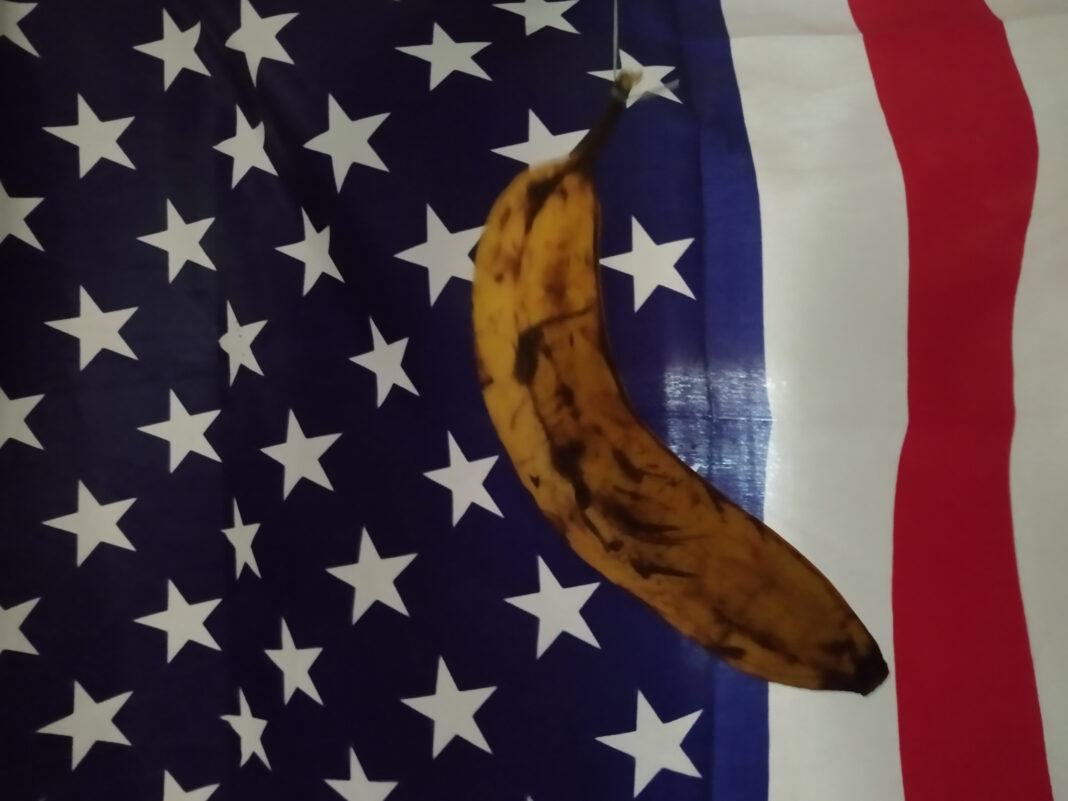UNITED STATES—Death by jumping was nothing new. A long, long time ago Max E. White was brought as a tyke from Poland to Ellis Island, just as the roaring 20s sputtered to a halt on black Thursday, provoking a perceived epidemic of dry-divers around Wall Street, including reports that people had jumped from bridges and airplanes. That tenacious national memory, amplified by drama, movies and family stories, all started with a gag.
That funny man, poet lariat of Uncle Sam’s Bananaland paradise, and New York Times columnist Will Rogers, wrote in his daily column, which besides appearing in the Gotham rag, reached a total of 40 million households (a number approaching the horrific zeroes that were now stalking Max. E. White), the Oklahoman clown-sage wrote, “When Wall Street took that tail spin, you had to stand in line to get a window to jump out of, and spectators were selling spaces for bodies in the East River.”
So the myth took root.
Like Sam Delaney’s young father said in Bessarabia before he expired of brain fever, “You must be careful, son, who you joke about.” He left that country named Ham Zeleny, which in Hebrew means (warm, hot and brown), and Sam had never much liked the name Ham (הם) and he chose Sam for himself.
When Sam was a stripling of 13, he arrived in New Orleans, after the New York family got tired of him and his mom. Some people already come with a core of American-ness, and being Sam was one of them. All during the Ocean crossing Sam, gifted with a supernatural sense of Americanness, had a mind to rechristen himself Sam upon arrival, then in retaliation he would declare himself Ham Sandwich, should they insist on using Ham.
The poet-immigration officer at Ellis Island, was happy to go along with (it would have been something to tell the missus about when he got back to the Bronx) but instead, in one of these fierce impulses that mark the life of a Jewish mother, drawing on this superpower, Ham’s mother overruled him, and scolded him for denying his ancestors, the Zeleny family. In the ensuing confusion, a sort of brain fog set in, the officials recorded Ham as Sam and his birthplace as Russia, and as Sam Delaney, he went on to a distinguished career in business and diplomacy.
Sam got in a lot of scrapes, because schoolmates, when he did go to school thought he was Irish.
It’s the rags to riches story of somebody off the boat and Sam Delaney in the right place, in the right time, with the right stuff, having just come out of the pogrom. Using some wheels off a discarded bicycle, he made his own stand that could roll along, and he started acquiring the sweet bananas, the ripe ones, that were just about to go rotten from the greengrocers. There by the dock, where the freighters stuffed with bunches of bananas clogged the Mississippi. And he saw some being thrown into the river.
They were only too happy to give them to the tall, gangly kid, and in fact, some out of goodness for this go-getter who had a surreal grasp of the English language that would last into his 80 plus years on Earth, G-d bless him. Ham, by the way was anything but orthodox and even a bit of an Iconoclast. Ham and his cart became a familiar sight around New Orleans from the French Quarter to the neighborhood around Lake Pontchartrain.
And he got smart and got another kid to take on a cart and he’d pay him in bananas. An octoroon and Ham would be sure he answered their queries that Ham would be back another day. In this way, Sam Delaney, who became known as “Sam the Banana Man,” spread his fame and just before his sixteenth birthday had amassed $8000, and that meant something in $1899, yessir, they said you could buy a whole territory out West like Idaho or Arizona for that kind of moolah. He respected the value of his work and thought that to make that money sprout and grow—that was his reigning ambition.
One day he was down with his banana cart by the port and met this guy with a foppish straw hat of woven palma, a real natty suit and a walking stick. He introduced himself,
“I met the president of the United States.”
He was bursting to tell his mother after pushing his cart as far as mid-city, when she got home from her job as cleaning lady.
“Ma, I met the president of the United States today?”
“Whut?” she said.
“I met the President of the United States Banana Company,” he said in Russian. She was supposed to laugh, but she didn’t laugh or show the hint of a smile, but rather frowned with concern. No sense of humor, mama, Sam bemoaned, but she deserved respect for bringing him to this wild new land to match the height of his dreams. Bless her, though she still deserved to be in the olde country.
To be continued…
Graydon Miller is the Wizard of Fiction.






